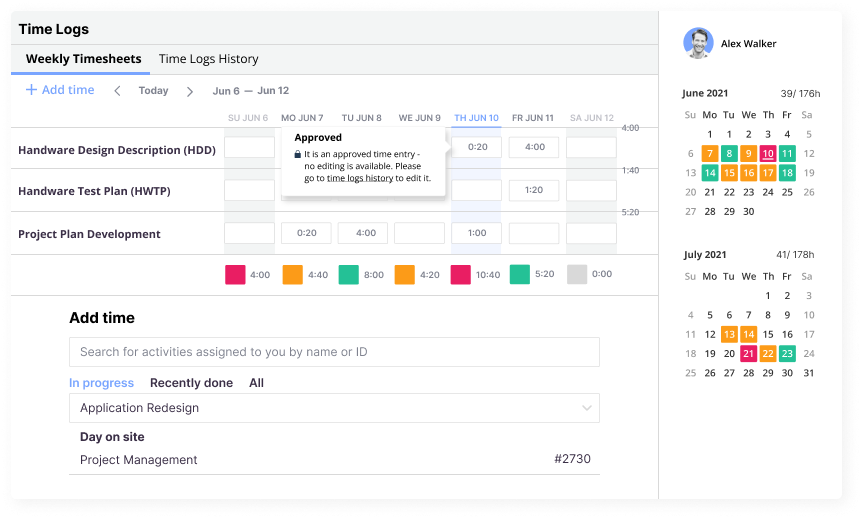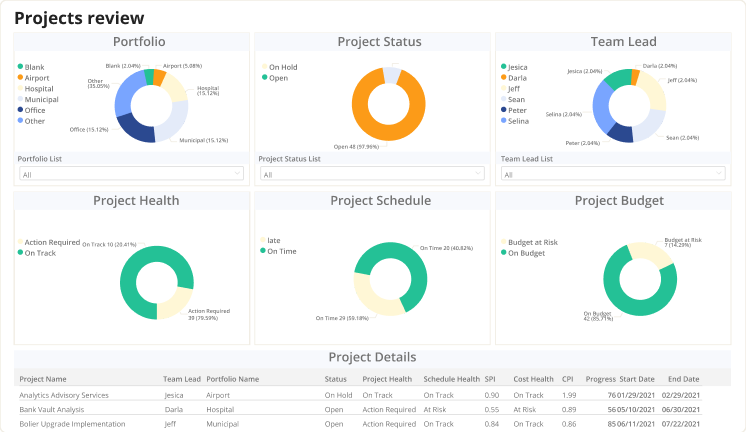A project manager is someone who is responsible for the planning and execution of a project. Their job is to make sure that a project is completed on time and on budget. To do their job well, they must also be very good at managing people. The role of the project manager is forever evolving. In today’s world, the
skills needed to be an effective project manager is changing as we are confronted with new technology, new ways to work and new methods of communicating. In
today’s world, a project manager must be not only technically inclined but also open and willing to look for technical solutions to make their projects a
success.
Skills required for a project manager
The role of the project manager is forever evolving. In today’s world, the skills needed to be an effective project manager are changing as we are confronted with new technology, new ways to work, and new methods of communicating. In today’s world, a project manager must be not only technically inclined but also open and willing to look for technical solutions to make their projects a success. The skills required for project management are many, but many that most of us already have. Here are the fundamental ones:
1. Communication
This is the most crucial skill for any job, not just project management. Being able to express yourself clearly to your team in a positive and direct way is
a skill worth perfecting.
Further Reading:
- No-Fail’ Project: Part II – Improving Team Communication
- 5 Ways to Increase Team Productivity Through Communication
- Is There Such a Thing as Too Much Communication?
- Tips how to effectively handle miscommunication inside your team
2. Conflict Management
This particular skill is important because projects are often fraught with conflicts. Conflicts over resources, conflicts between team members, conflicts with stakeholders – the list goes on. Murphy’s law comes to mind when there is a big project to be completed because of the pressure to finish on time: everything that can go wrong will. That’s when you step in with your superpowers and make things all better so that the project can move forward.
Further Reading:
3. Political Savvy
Being political is not a bad thing. It means saying and doing things in a way to get what you want from everyone around you. From your team, vendors and
stakeholders, and bosses boss, you should know how to manage all of your professional relationships.
4. Stakeholder Management
You need to know what matters to your stakeholders so you can deliver the right information when needed. It’s important to understand their expectations and how to manage them (i.e., underpromise and over-deliver), and how to communicate with them in the most effective way possible.
Further Reading:
As a project manager, the majority of your time is not spent planning or analyzing. It’s spent managing your team. If your team doesn’t see you as a leader,
they won’t take you seriously. If they don’t take you seriously, you can bet they won’t take your project very seriously either.
Further Reading:
Responsibilities of a project manager
A project manager plays a pivotal role in the success of a project, acting as the bridge between the project team, stakeholders, and the organizational strategy. This role encompasses a wide range of responsibilities, from the initial planning stages to the final delivery, requiring a mix of technical knowledge, leadership skills, and strategic thinking. Below, we explore the key responsibilities that define the role of a project manager.
- Project Planning and Design
The initial stage of project planning and design is critical, requiring the project manager to define the project scope clearly. This involves setting precise objectives, deliverables, and timelines, ensuring that there is a common understanding among all stakeholders regarding what the project aims to achieve. Allocating resources efficiently is another crucial responsibility, as it involves determining and distributing the necessary time, budget, and manpower to reach project goals. Furthermore, the project manager must anticipate potential risks and devise comprehensive strategies to mitigate these risks, safeguarding the project against possible setbacks.
- Execution and Coordination
Once the project is underway, the project manager’s focus shifts to execution and coordination. Leading and managing the project team effectively is essential for fostering an environment of collaboration and efficiency. This includes motivating team members, resolving conflicts, and facilitating smooth communication. The project manager also acts as the primary liaison with stakeholders, ensuring they are kept informed about the project’s progress and are engaged in the decision-making process. Maintaining high standards of quality is paramount, with the project manager implementing quality control processes to ensure that all deliverables meet the established criteria and stakeholder expectations.
- Time Management
Effective time management is essential for the success of any project, and it falls to the project manager to keep every part of the project on schedule. This requires careful planning and scheduling of all activities from start to finish. A project manager needs to create a detailed plan that includes every task, its duration, dependencies, and assigned resources. This plan acts as a guide for the team, crucial for monitoring progress and making necessary adjustments along the way.

- Budgeting
Budgeting is another fundamental responsibility of the project manager, requiring the careful planning and management of the project’s financial resources. The project manager is responsible for developing an accurate budget that covers all project-related costs, such as labor, materials, equipment, and other expenses. This task includes making precise cost estimates, obtaining budget approval from stakeholders, and ensuring the project stays within financial boundaries. Throughout the project lifecycle, the project manager must monitor expenditures, compare actual costs against the budgeted amounts, and make financial adjustments as necessary to avoid overspending.

- Monitoring and Controlling
Monitoring and controlling the project’s progress is a continuous responsibility. This involves using project management tools to track advancements against the plan and making necessary adjustments to schedules and resources to accommodate any changes. The project manager must continually assess and manage project risks, applying mitigation strategies promptly to prevent delays or budget overruns.
- Closing
The closing phase marks the project’s completion, where the project manager ensures that all objectives and deliverables have been met and obtains formal acceptance from the stakeholders. Conducting a post-project evaluation is also crucial, as it allows the team to reflect on the project’s successes and challenges, gathering valuable lessons learned for future initiatives. Finally, compiling and archiving all project documentation according to organizational policies is essential for facilitating future reference and compliance.
- Leadership and Communication
Throughout the project lifecycle, the project manager’s leadership and communication skills are vital. Inspiring the team, providing clear direction, and maintaining a positive, productive work environment are all key leadership responsibilities. The project manager must also excel in conflict resolution, ensuring that any disputes are addressed and resolved in a manner that maintains team cohesion and project momentum. Adaptability is another critical attribute, as it allows the project manager to respond effectively to changes and challenges, ensuring the project remains aligned with its objectives despite any obstacles that may arise.
Common challenges faced by project managers and their solutions
Addressing the common challenges faced by project managers and proposing solutions is essential for any comprehensive project management guide. Here are only a few challenges and practical solutions that project managers can employ to navigate these issues effectively.
Challenge 1: Scope Creep
Scope creep refers to uncontrolled changes or continuous growth in a project’s scope without corresponding adjustments in resources, time, and budget. It can derail a project’s planned trajectory and lead to resource strain.
Solution: Implement a rigorous change management process. Before the project begins, clearly define the project scope, objectives, and deliverables. Any request for changes should go through a formal evaluation process, assessing the impact on time, costs, and resources, with necessary adjustments made to the project plan and budget. Regular communication with stakeholders about these changes and their implications is crucial to managing expectations.
Challenge 2: Inadequate Team Skills
Projects often suffer when the team lacks the necessary skills or expertise required to complete the project successfully.
Solution: Conduct a skills assessment during the planning phase to identify any gaps in the team’s capabilities. This can be followed by targeted training, hiring additional staff with the required skills, or outsourcing specific tasks to experts. Developing a culture of continuous learning and improvement can also help address this challenge over time.
Challenge 3: Poor Communication
Effective communication is vital for project success. Miscommunication can lead to errors, misunderstandings, and conflicts within the project team and with stakeholders.
Solution: Establish a clear communication plan that outlines how information will be shared, the frequency of updates, and the channels used. Make use of project management tools that support effective collaboration and keep all team members and stakeholders informed about project progress, changes, and decisions.
Challenge 4: Risk Management
Every project faces potential risks that can affect its success. Failing to identify or adequately prepare for these risks can lead to project failure.
Solution: Create a detailed risk management plan that involves identifying potential risks, evaluating their probability and potential impact, and devising strategies to mitigate them. It’s important to consistently review and update this plan throughout the project’s lifespan to tackle new risks as they emerge.
Challenge 5: Time and Budget Constraints
Managing a project within the constraints of time and budget is one of the most significant challenges. Delays and cost overruns can compromise the project’s success and stakeholder satisfaction.
Solution: Careful planning and realistic budgeting are essential. Use project management software to track progress and manage resources efficiently. Regularly review project status and adjust the plan as needed, incorporating buffer times and contingency funds to manage unexpected issues.
Challenge 6: Stakeholder Expectations
Balancing and managing the expectations of various stakeholders, who may have different or conflicting interests, is a common challenge.
Solution: Engage stakeholders early in the project planning process and maintain regular communication throughout the project lifecycle. Clearly understand their needs and expectations and manage these through negotiation and prioritization, ensuring alignment with the project’s objectives.
Challenge 7: Leadership and Team Dynamics
Leading a diverse team and maintaining positive team dynamics can be challenging, especially in projects with high stakes or tight deadlines.
Solution: Foster an inclusive team culture that values open communication, collaboration, and respect. Be proactive in resolving conflicts and ensure that team roles and responsibilities are clearly defined. Leadership training can also be beneficial in enhancing these skills.